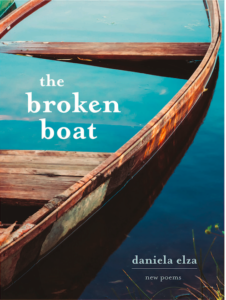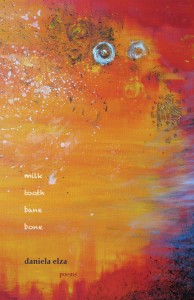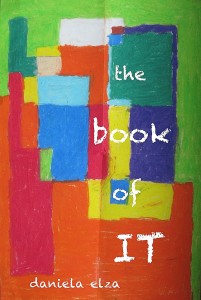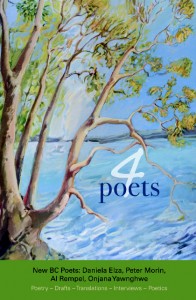writing: a way: of being:
Posted by Daniela Elza on Feb 06 2010
As many of you know I have been hard at work on the recently completed manuscript. Jumped right into writing again for another deadline, and this week when I launched into the collaboration on a paper between poetry and philosophy my mind told me: That’s it. I cannot focus, I cannot switch gears, I cannot, I cannot… I cannot…. That combined with the few rejections that came in close together and I could see glum and gloom on the horizon. But I do not have time for glum and gloom. So I had to come up with a better story. It hit me the other day, I have not given myself a break. I have not followed my own advice. And that is: when empty, fill up. So I gave myself permission to do that. Hope you will too.
I read: Ignore Everybody: and 39 other keys to creativity by Hugh MacLeod. From cover to cover, took about two and a half hours. Reminded myself (again) why I write. That the essence of it is not in getting published, (although that is part of the game we have to play, and a nice side effect). Play being the key word here, but playing your own game first.
Concurrently, I got a link from a friend who pointed to What does it mean to be a writer? a post on Planting words …how does my garden grow blog. Fiona Robyn says: “[Poems] are like glittering sloughed-off skins, they are a result of a particular way of living in the world.”
Yes, writing is its own reward. Writing is the beneficial side effect of being in the world a certain way. I call that the poetic consciousness, but I am sure there are many names we could give it.
And the skin idea is beautiful since we change in this process: shed poems, novels, photographs, painting, dances, songs, etc.
If writing becomes a translation of this way of being, then perhaps we can also look at the act of writing as a way of being.
So what is in it for the reader? What does the reader respond to? The answer to this question could be voluminous (as its latin origin suggests: having many coils). Also vo(luminous as shedding light.
Here is my two cents for now, which came to me while participating in a discussion on Rob Taylor’s blog (by the way this blog is full of passages that whet my appetite to think about the nature of this paradox we call writing/reading). Ironically enough the post is called dissolve the barrier of skin and bone and separateness.
I thought how as a writer I try to translate as adequately and accurately as language (and my abilities with it) afford me, form my/the world into the word. Committing that first act of translation (as Robert Bringhurst might say).
But what do all these words amount to in the reader/listener?
I see the concrete experience of the writer as a beam of light which through the act of writing gets refracted in language. But where to? And into what spectrums? The variables here get too numerous to be able to apply science to them or precision. The reader is not a rigid, flat surface. We respond to the words as we know them, even more importantly, we respond to the humanity behind the words. The surface is fluid. And the surface is always in motion.
And as a writer I continue to benefit from this refraction. ie. exploring the many different angles and beams. I become the surface on which my words start playing. Some of these refractions were not present at the initial writing.
So it is as “precise” as we can get it at the moment of writing, and yet, we ourselves as writers begin to interprete it. In other words we become readers :-) of our own writing.
If this is difficult to see, think of the analogy of where you read someone’s words again over time, and they speak to you differently than they spoke to you a decade ago. What has changed? Not the words, right? You are a different surface, in a different moment in time, reflecting differently.
So the reader does at least half of the work. We need to give a lot of credit to the reader. They are like a translator, courageous enough to launch on their own act of translating. And we know that can be its own piece of art. And as unique. Which is a wink in the direction of the reader who turns critic.




